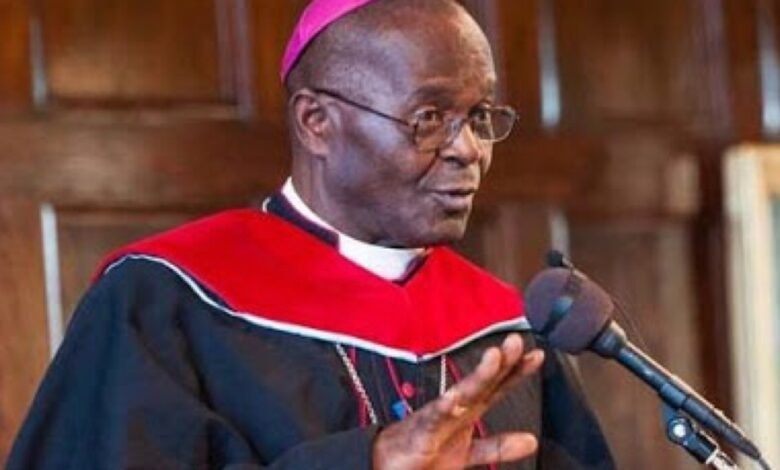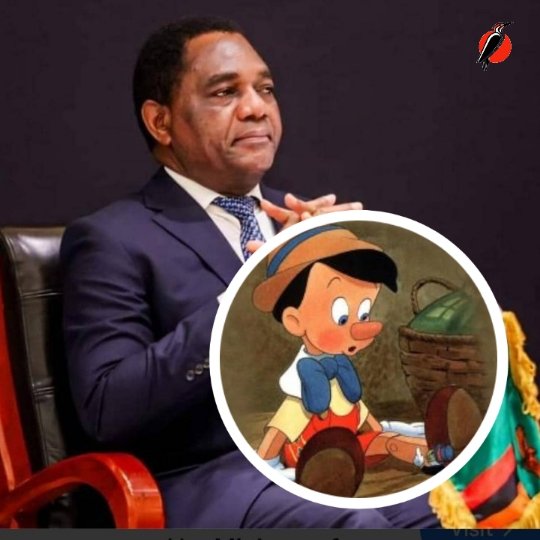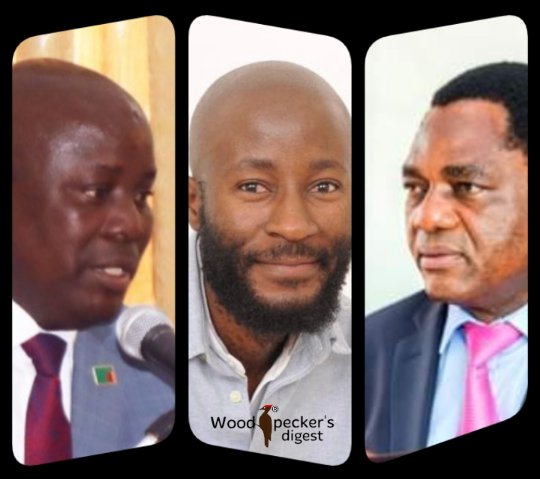
The story in 1 Kings 22:1-40 of Ahab’s demise serves as a stark reminder for President Hakainde Hichilema. The voices of the Catholic Bishops and the Law Association of Zambia offer him a lifeline of truth, an opportunity to navigate the treacherous waters of governance with wisdom and clarity.
By Dr. Lawrence Mwelwa | Columnist.
Lusaka, Nov. 16 – In the ancient times, the story of Ahab and the lying spirit captured the attention of many. It was a tale that warned against the perils of relying solely on the advice of others, especially when personal ambitions cloud judgment. Ahab, the king of Israel, found himself in a precarious situation, desiring to retake the city of Ramoth-gilead from the Syrians.
Seeking guidance, Ahab gathered around him four hundred prophets who all proclaimed victory and encouraged him to go forth with his plans. Hopeful and eager for success, he embraced their words without question. But amidst this chorus of reassurances, one voice stood apart.
Jehoshaphat, the king of Judah, hesitated. He knew that these prophets were mere mortals and longed for the wisdom of a prophet of the Lord. Ahab reluctantly mentioned Micaiah, a prophet who was known for delivering less favorable prophecies. He dismissed him, saying that his prophecies were always negative.
Also Read: Zambia’s presidential mantle shift & transitional patterns! By Dr. Rev. Lackson Malombola.
“In the midst of anyone coming with a call for correction to the king, the King must go into introspection and avoid any path of harm. But man’s carnal mind will be quick to defend itself with legal spectacles, ignoring the spiritual ones which can tell when transitional leadership expires.” – Dr. Rev. Malombola.
However, Jehoshaphat persisted, urging Ahab to summon Micaiah. Reluctantly, the prophet appeared before the kings, well aware of Ahab’s scorn for his divinations. The other prophets began affirming the assured victory, feeding Ahab’s desires, but Micaiah knew better. In a vision, he had seen a multitude of spirits, willing to deceive the prophets and ultimately lead Ahab into a trap. Micaiah spoke the truth, warning Ahab of the lying spirit that would guide the other prophets’ mouths. His words rang with a profound revelation – it was God’s will that Ahab would be deceived due to his wicked inclinations.
Yet, despite this dire warning, Ahab chose to ignore Micaiah’s prophecy. Blinded by his own ambitions and the affirmations of the majority, he plunged headlong into battle. Tragically, his decision proved fatal. Ahab was gravely wounded and met his demise on the battlefield, the prophecy of Micaiah eerily fulfilled.
This cautionary tale resonates deeply, not only because of its historical significance but also in its relevance to the present day. In the realm of politics, leaders often find themselves surrounded by advisors and allies who may have their own agendas. It becomes crucial to discern truth from deception, even when it clashes with personal desires.
And so, the story of Ahab’s demise serves as a stark reminder for President Hakainde Hichilema. As he stands at the threshold of power, he must learn from the mistakes of his predecessors. The voices of the Catholic Bishops and the Law Association of Zambia offer him a lifeline of truth, an opportunity to navigate the treacherous waters of governance with wisdom and clarity.
“There’s more corruption in the UPND administration than ever before under the watch of the captured ACC, DEC and the State Police. President Hichilema promised to fight corruption but his heart is not in it. Quite shameful, frankly speaking, authoritarianism is a ruse that fails to solve a fundamental problem.” – Emeritus Archbishop Telesphore Mpundu.
The echoes of Ahab’s downfall reverberate in the challenges faced by President Hichilema’s nation. The economy teeters on the brink of collapse, the cost of living becomes unbearable, and the exchange rate plummets. These are the harsh realities that cannot be ignored or dismissed. In the quiet moments, as families gather around their television screens, conversations inevitably turn towards the desire for change, for a leader who can steer the nation to brighter shores. It is a sentiment shared by many, a truth that is etched into the hearts and minds of the people.
President Hichilema must heed the lessons embedded within the tale of Ahab and acknowledge that history has a tendency to repeat itself when politicians fail to learn from their predecessors. The path to success lies in embracing the truth, in seeking counsel from diverse sources, and in the willingness to adapt and evolve. It is a pivotal moment for President Hichilema, one where he has the opportunity to rewrite the narrative, to break free from the cycle of deceit and destruction. The challenge lies before him – to be a student of history and to forge a path that will not be stained by the mistakes of the past.
Only time will tell if President Hichilema will rise above the temptations of power and align himself with truth and wisdom. The story of Ahab and the lying spirit stands as a reminder that the consequences of deception can be devastating, and history has a way of repeating itself for those who fail to learn its lessons.
About The Author: Dr. Lawrence Mwelwa is a respected academician, a former Vice Chancellor, a politician and revolutionary writer.







